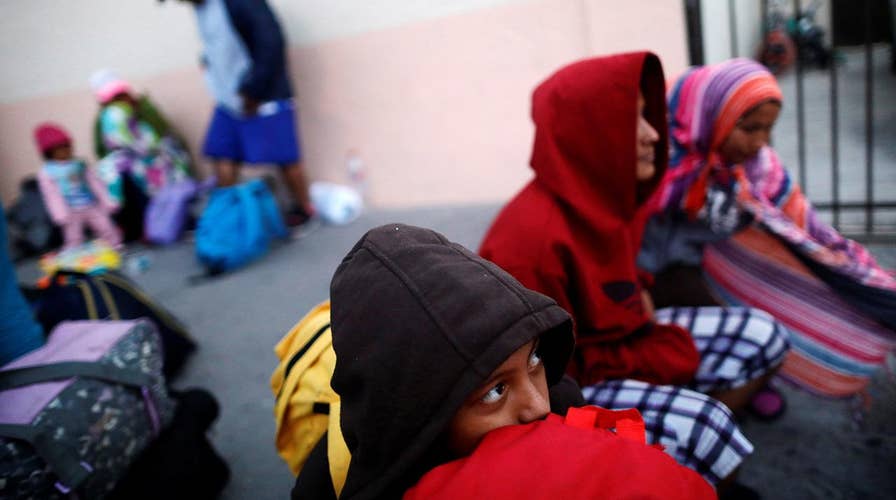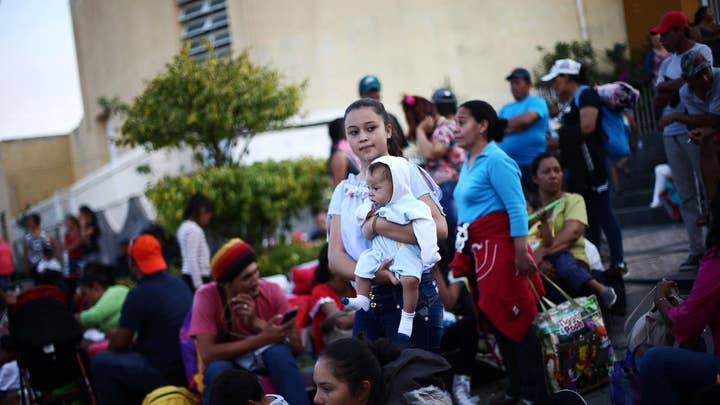Growing showdown over 'caravan' of migrants
Migrants from Central America have reached the U.S. border; William La Jeunesse reports from Tijuana, Mexico.
TIJUANA, Mexico – Roughly 100 remaining members of the immigrant caravan from Central American arrived in Tijuana, Mexico on Thursday.
Sometime this weekend, the group of 500 Honduran, Guatemalan and Salvadorans refugees are expected to cross the pedestrian bridge into the U.S. at the San Ysidro Port of Entry just south of San Diego to ask for asylum. Based on conversations with sources north and south of the border, here's what you need to know.
1. The group is a mix of women, children, families and young men. Rather than attempt to cross the border illegally over a fence, most will present themselves at the port to a customs agent and request asylum.
For context, while the caravan of 500 to 1,500 sought and received publicity, in March alone the Border Patrol apprehended 3,786 unaccompanied children and family units, up from 2,978 in February.
Since October 1, the two groups total more than 28,000 – of those almost 9,000 are from Guatemala and 4,500 are from Honduras, according to Border Patrol statistics.
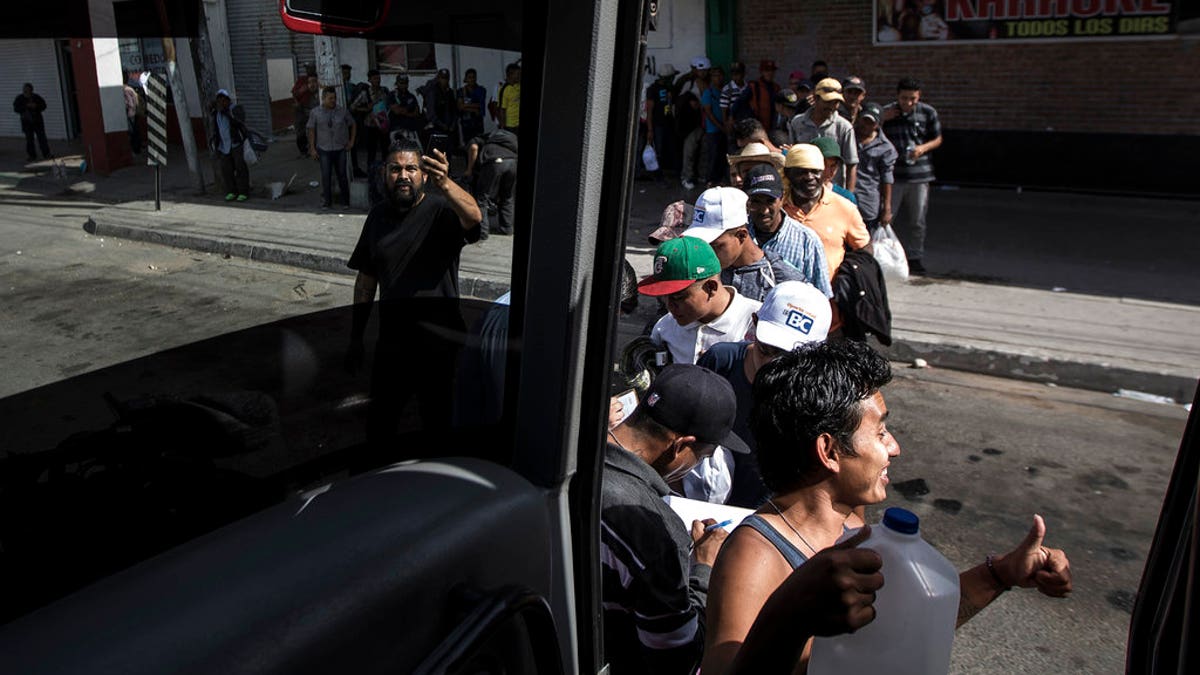
The group is a mix of women, children, families and young men. Rather than attempt to cross the border illegally over a fence, most will present themselves at the port to a customs agent and request asylum. (Copyright 2018 The Associated Press. All rights reserved.)
2. This is a lengthy process that begins with an interview with a Customs and Border Protection officer to screen those claiming asylum. The bar for this interview is extremely low and requires no actual evidence other than the claim. A CBP official said the agency will process “as many per day as we can.” That could be roughly 100.
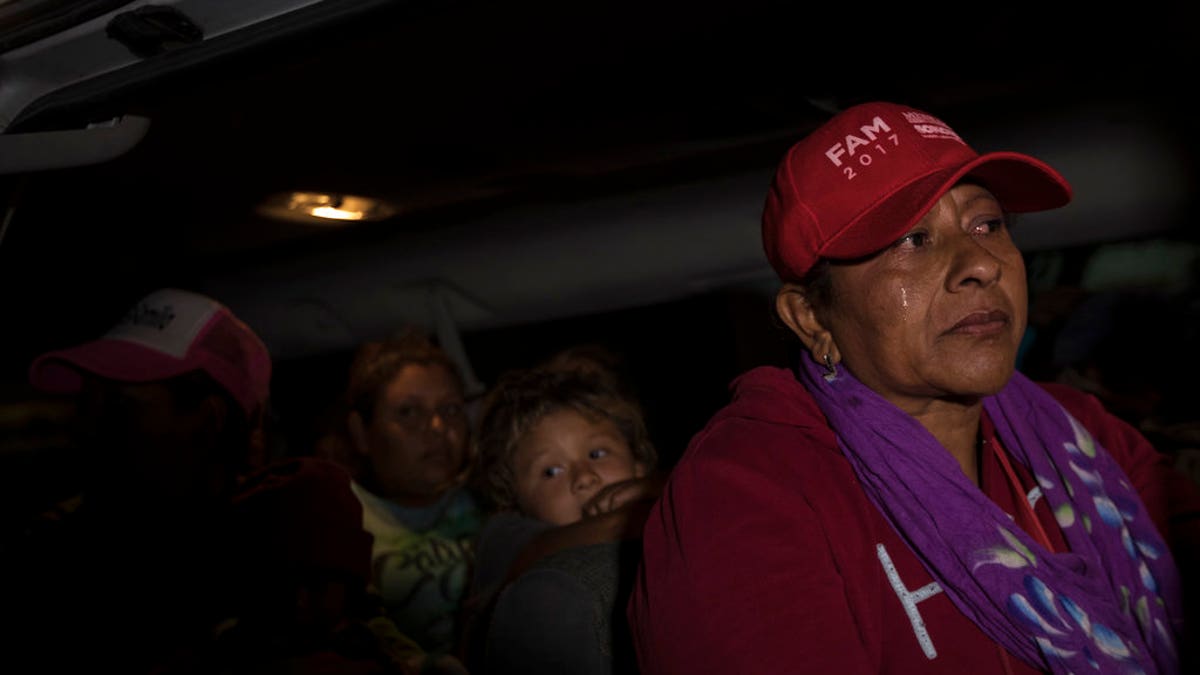
The lengthy process once they present themselves at the border begins with an interview with a Customs and Border Protection officer to screen those claiming asylum. The bar for this interview is extremely low and requires no actual evidence other than the claim. A CBP official said the agency will process “as many per day as we can.” That could be roughly 100. (Copyright 2018 The Associated Press. All rights reserved.)
3. If passed, the family or individual will likely be handed over to Immigration and Customs Enforcement to be transported to a detention facility, where a U.S. Citizen and Immigration Service officer will conduct a more through interview to establish if the individual has a "credible fear of persecution" if forced to return to their county.
Again, evidence is not required and an overwhelming majority are given a date or notice to appear in immigration court. Even those who are denied, are still given the right to see a judge.
4. Adult immigrants are typically held for a few weeks to a few months. Those with no criminal record are usually released in a few weeks. Some families are held together, others are not, depending on their claim and shelter space.
Under a court ruling called the Flores decision, the federal government must release children within 72 hours from detention to live with a relative, foster care or a charity.
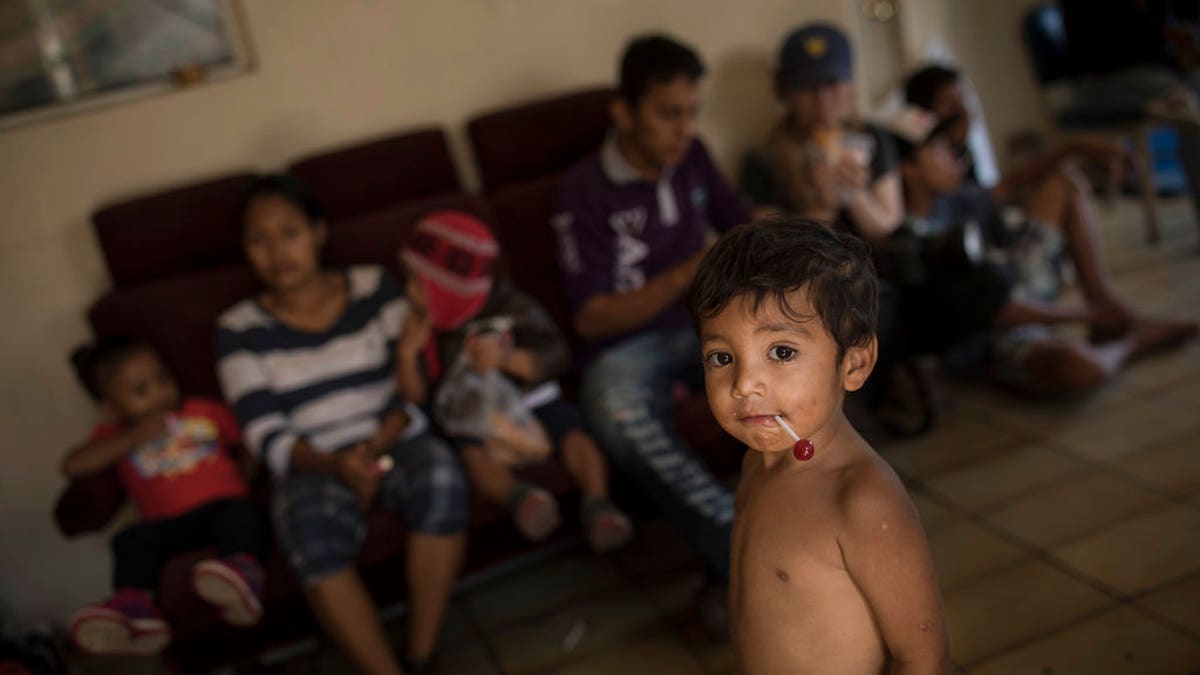
Under a court ruling called the Flores decision, the federal government must release children within 72 hours from detention to live with a relative, foster care or a charity. (Copyright 2018 The Associated Press. All rights reserved.)
5. Under a separate ruling known as the "Dolly Gee Decision," children and their parents are supposed to be released from detention "without unnecessary delay." That does not apply to criminal aliens or those with prior deportations. They are a priority for sustained confinement.
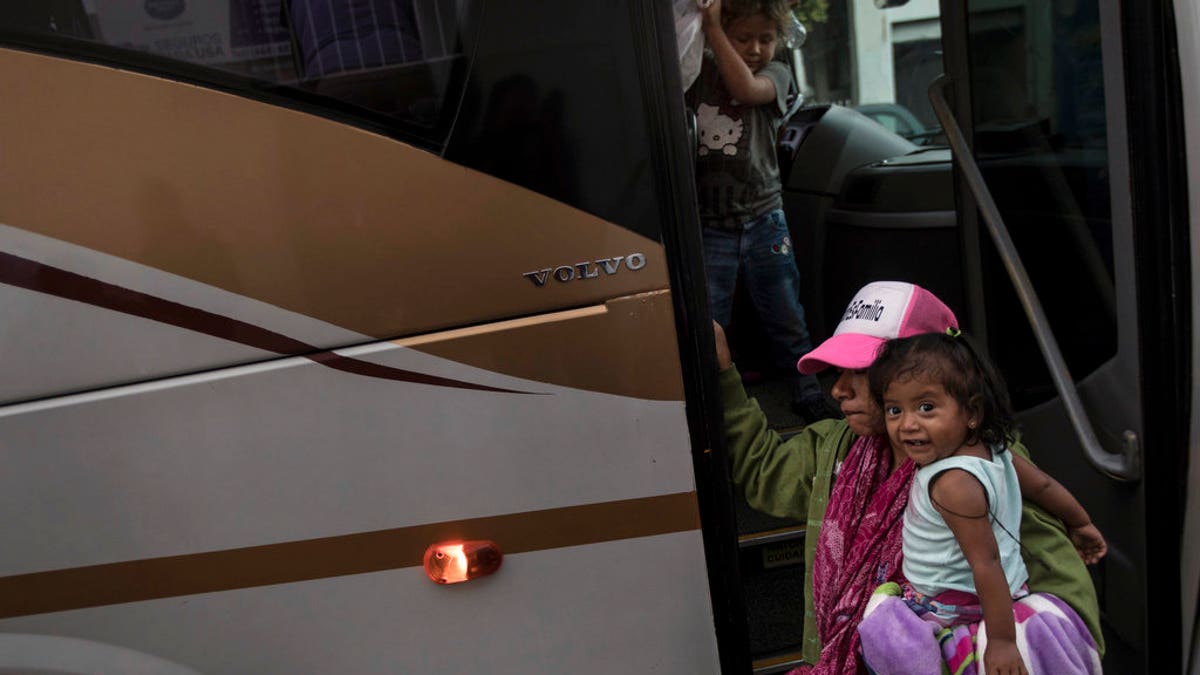
Under a separate ruling known as the "Dolly Gee Decision," children and their parents are supposed to be released from detention "without unnecessary delay." That does not apply to criminal aliens or those with prior deportations. They are a priority for sustained confinement. (Copyright 2018 The Associated Press. All rights reserved.)
6. The American Civil Liberties Union and others argue children and families should not be separated and should not be detained. Others argue most Central Americans are “economic immigrants” looking to improve their life and are not actually persecuted because of class, religion, race or political views.
Separating families can reduce fraud and frivolous claims, some argue, while lengthy detention terms also increase deterrence. Not everyone agrees. U.S. officials also claim tightening the 'credible fear' standard will discourage parents from sending their children on this dangerous journey alone, or with smugglers.
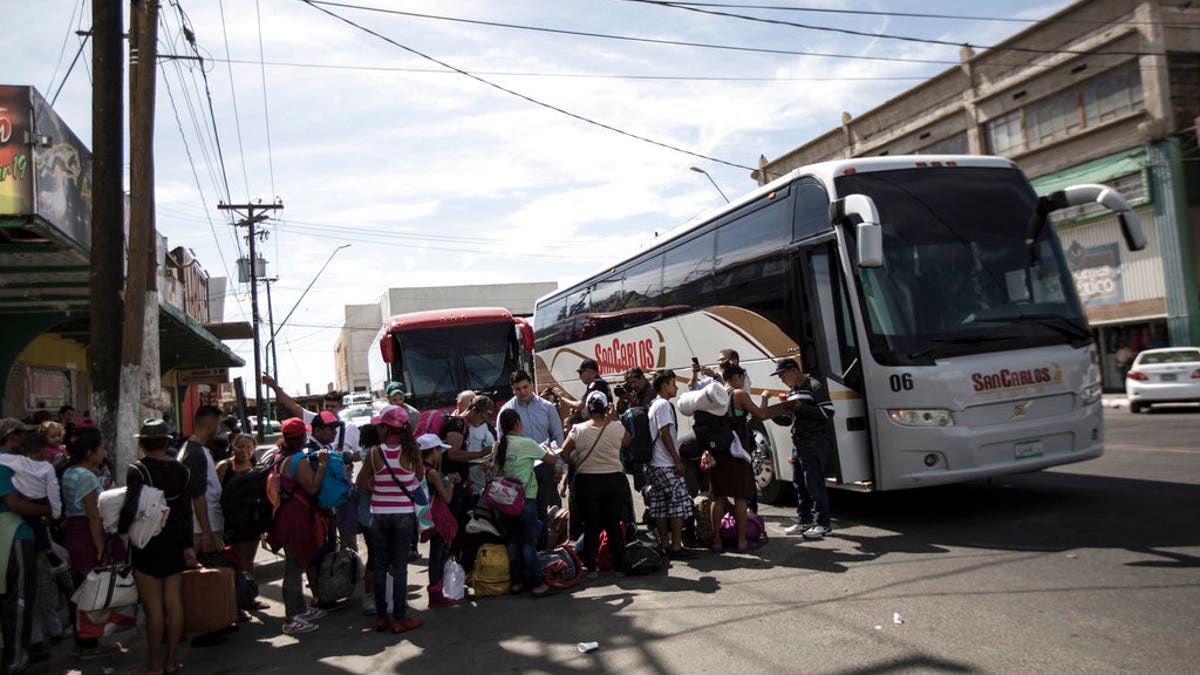
The American Civil Liberties Union and others argue children and families should not be separated and should not be detained. Others argue most Central Americans are “economic immigrants” looking to improve their life and are not actually persecuted because of class, religion, race or political views. (Copyright 2018 The Associated Press. All rights reserved.)
7. Department of Homeland Security Secretary Kirstjen Nielsen said she is sending additional prosecutors, judges and asylum officers to handle the load. The U.S. is also working with Mexico to work out an arrangement where the Central Americans register with Mexico, obtain a number, then essentially wait until their groups is called to present themselves at the Port of Entry. Neither the U.S. nor Mexico want women and children camped against the border in tents overnight for consecutive days.
8. Representatives for Puebla Sin Fronteras said the group plans a massive protest Sunday at the border, where the immigrants will demand dignity and justice and a right to live and work in the U.S. Despite strong words from Secretary Nielsen and President Trump, these refugees will be treated just like those under President Obama. They will be processed and released and given a date in court for which statistics show 85 percent will not appear.
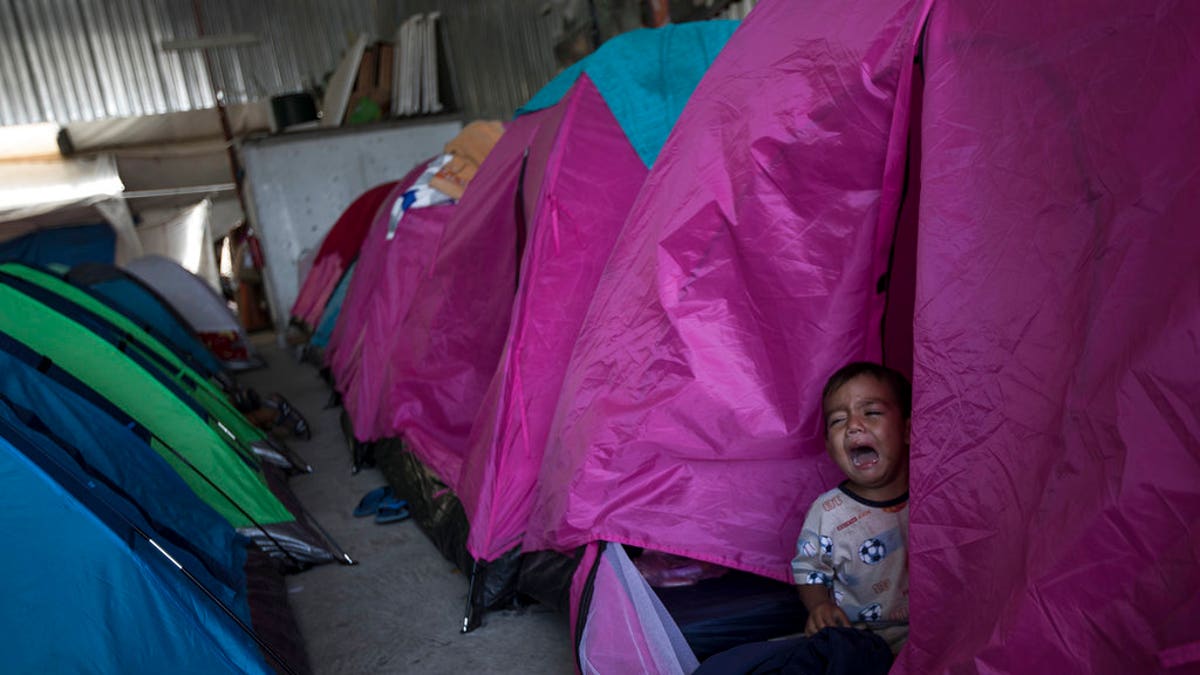
The U.S. is also working with Mexico to work out an arrangement where the Central Americans register with Mexico, obtain a number, then essentially wait until their groups is called to present themselves at the Port of Entry. Neither the U.S. nor Mexico want women and children camped against the border in tents overnight for consecutive days. (Copyright 2018 The Associated Press. All rights reserved.)
9. Critics say two changes in the law are needed. A law allowing "expedited removal" of any immigrant who does not apply for asylum or safety in the first country outside their own. This would force Mexico to better police its southern border since most Central Americans could then be deported to Mexico. A second change in the law would more broadly allow for the deportation of unaccompanied minors who are not victims of human trafficking. A bill sponsored by House judiciary Chairman Bob Goodlatte would treat all children the same as those from Mexico, and require an immigration hearing within one week of being apprehended by the Border Patrol.
10. Without legislative changes and additional money, administration sources say the public should not expect any change in policy because the law dictates what happens when an asylum claim is made. Critics say this robs the president of his attempt to send a message to Central America - that anything has changed – thus encouraging additional immigrants to make the journey. Without pressure on Congress to close 'loopholes,' few expect anything to change and the U.S. will see more caravans in the future.
